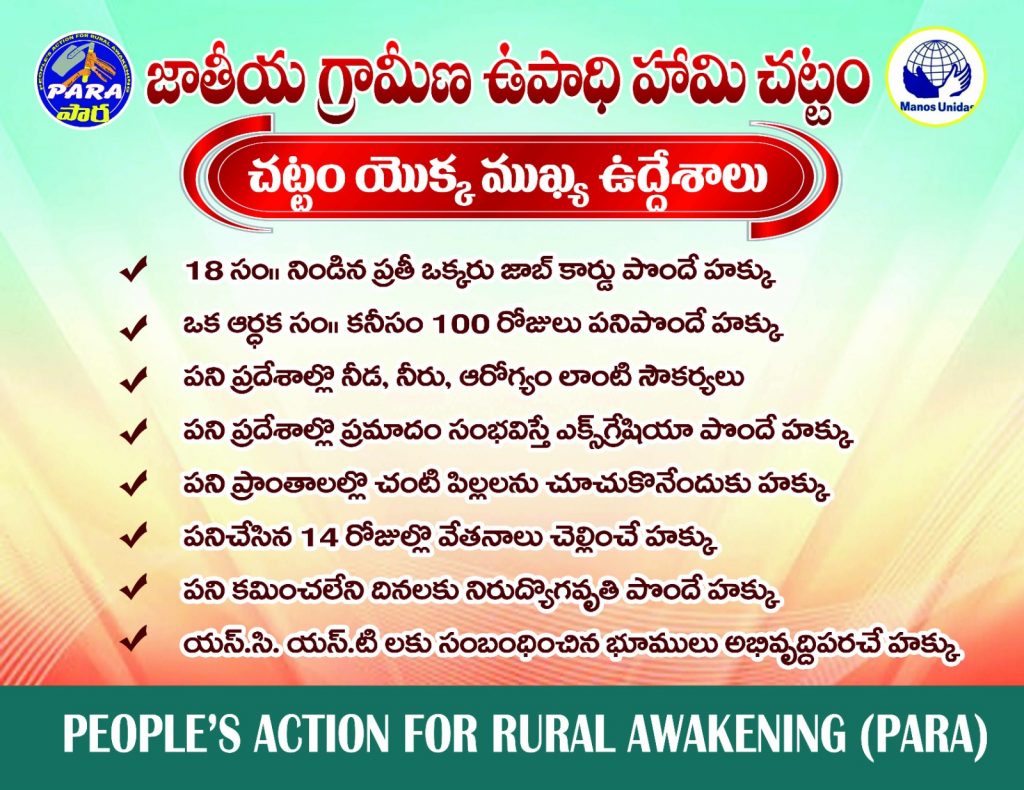
Mahatma Gandhi National Rural Employment Guarantee Act (MGNREGA)

The New Year 2019 Beckons us to Equality


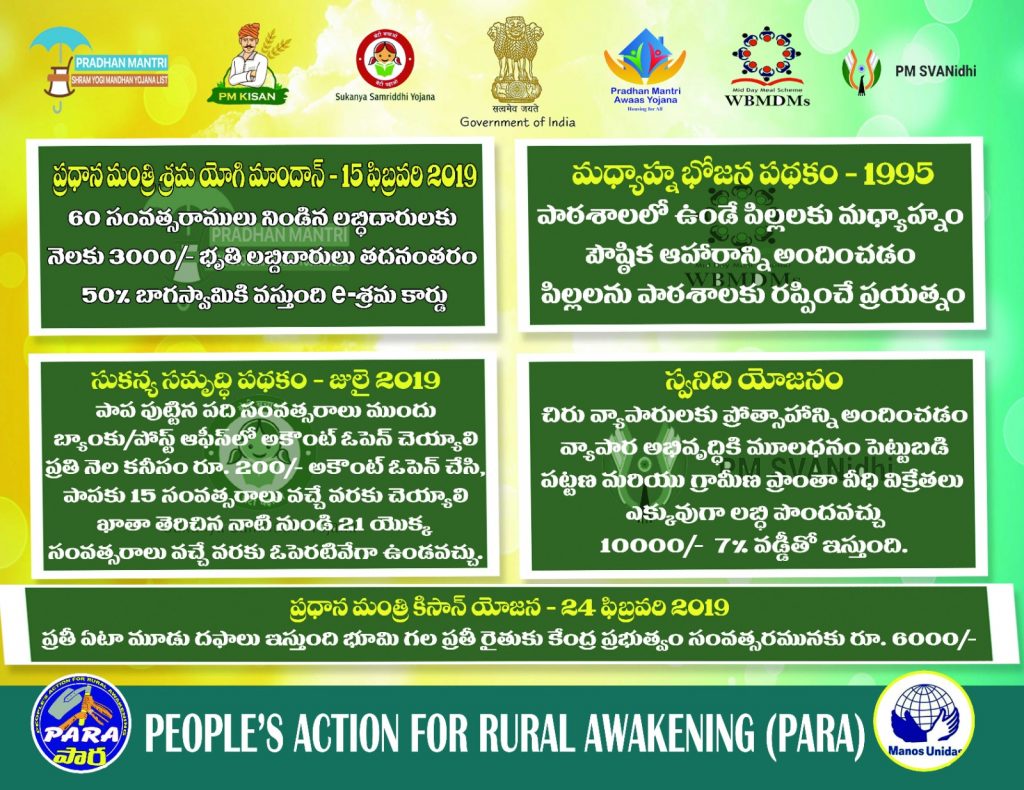
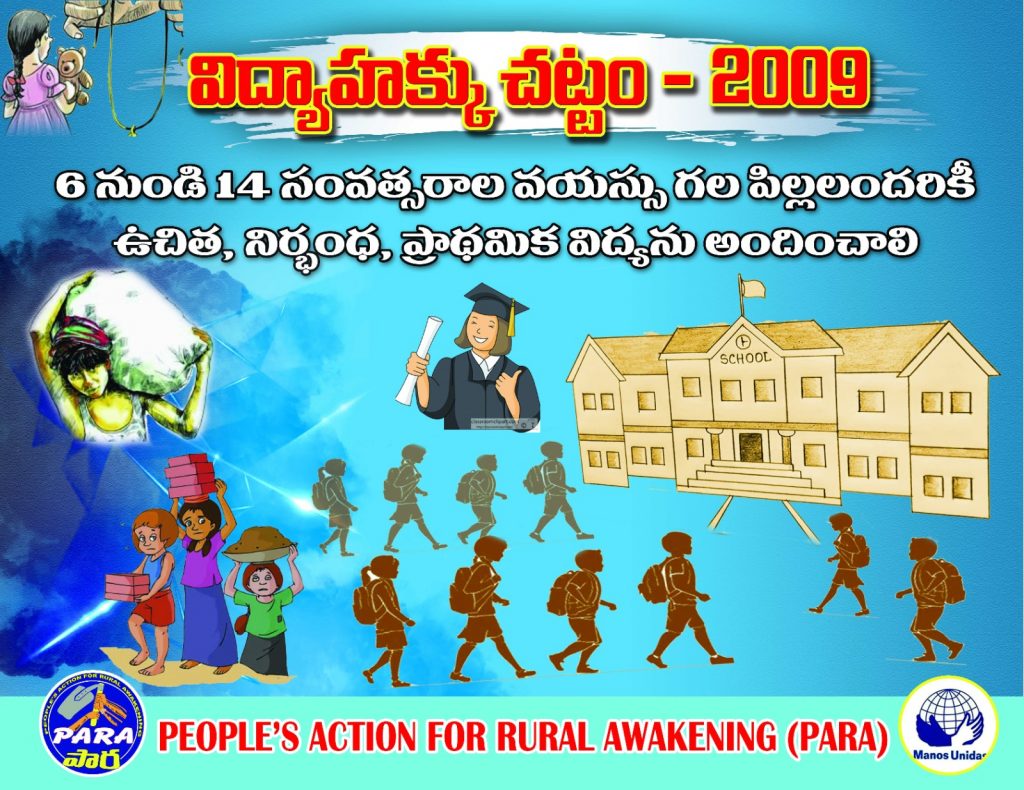
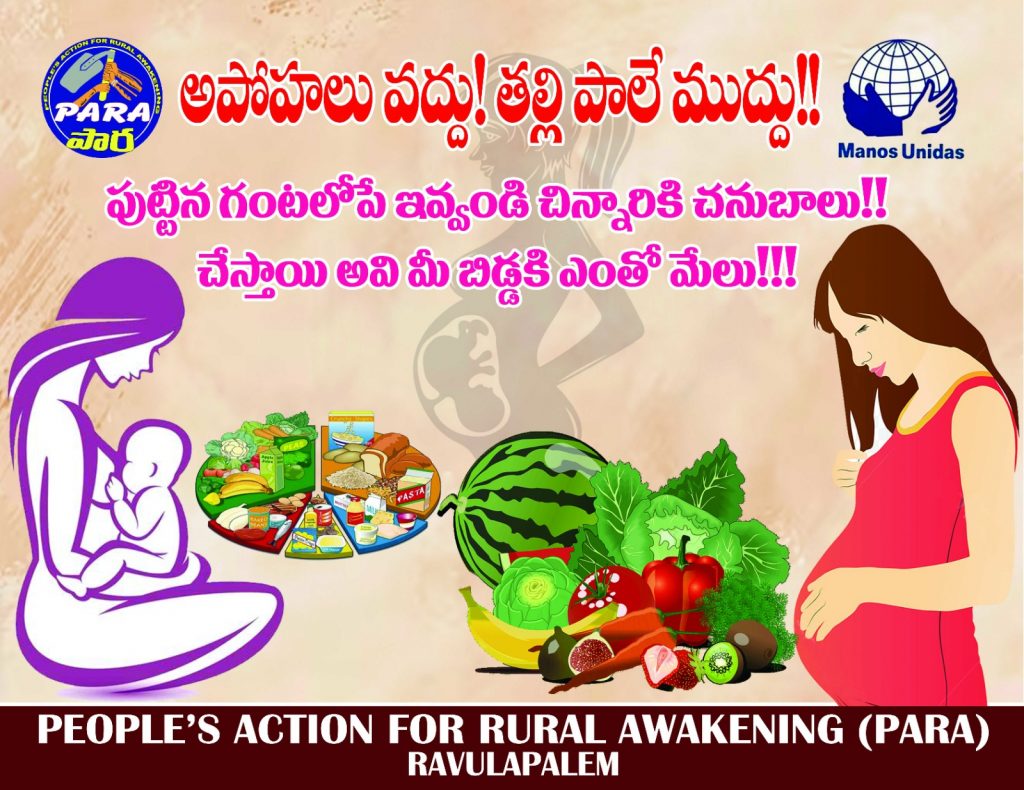
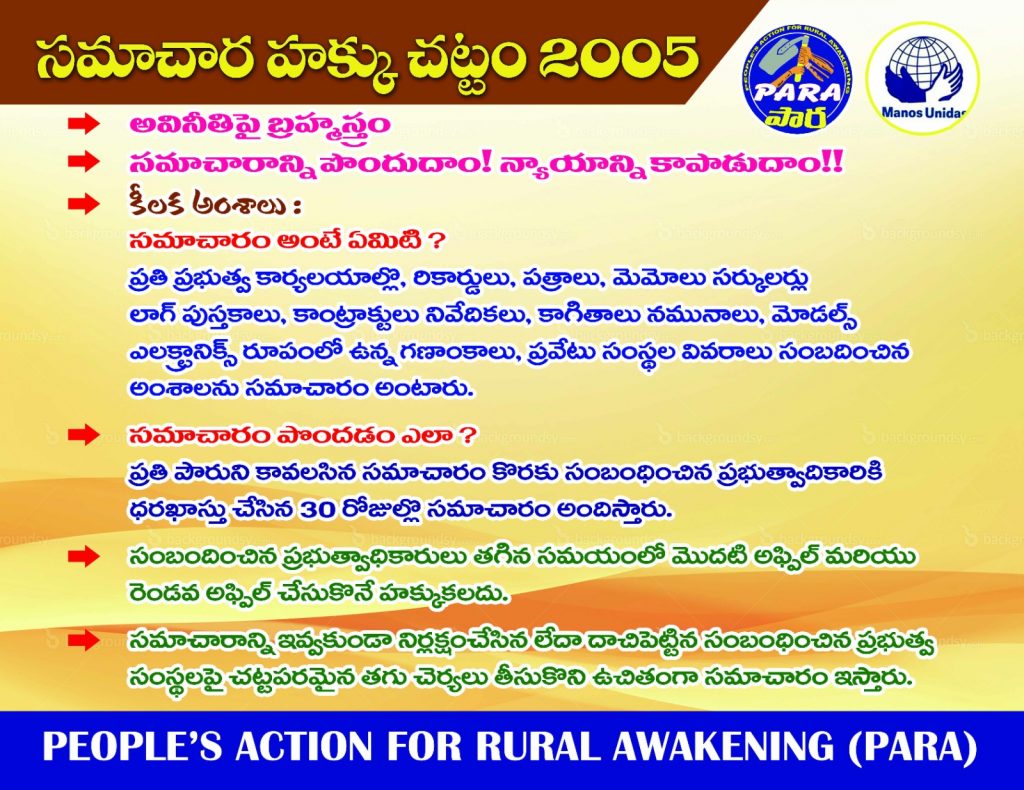
Caregiving often involves parents or guardians who provide support to individuals unable to care for themselves due to age, illness, or disability. Caregivers play a crucial role in ensuring the well-being and quality of life of their care recipients. Their responsibilities include assisting with daily living activities such as bathing, dressing, and eating. Beyond physical care, they also offer emotional support and companionship. In many cases, caregivers manage medical care by administering medications and attend medical appointments.
PARA’s Intervention
PARA focused on supporting children and individuals with disabilities. One of its inclusive projects targeted the care of children who were bedridden due to severe disabilities. This initiative emphasized equipping caregivers with the knowledge and skills required to handle such children appropriately. In many rural areas, caregivers often lacked awareness of the dos and don’ts of caregiving, leading to inadequate care. PARA addressed this issue by identifying children with disabilities in four blocks and advocating for government-supported caregiver training.
Fifteen caregivers from each block were selected and trained at Bavitha Centres, government-run facilities that provided education and care for children with disabilities. The training sessions were organized in Alamuru, Atreypuaram, Ravulapalem, and Kothapeta, with schedules tailored to the availability of participants.
Caregiver Training Program
The training program covered various aspects of caregiving. Participants were educated on monitoring health conditions, managing medications, and administering specific treatments tailored to the needs of the children. Communication skills were another key focus, with caregivers learning to develop both verbal and non-verbal communication techniques. This included speaking clearly, listening actively, and interpreting body language to better understand the children’s needs.
Personal care tasks, such as bathing, dressing, and toileting, were also emphasized to ensure the children’s hygiene and dignity. Additionally, caregivers were taught how to cope with the physical and emotional demands of caregiving. Stress management techniques were introduced, helping them recognize signs of burnout, such as fatigue, irritability, and feelings of being overwhelmed. Self-care practices, including taking regular breaks, seeking social support, and engaging in stress-relief activities like mindfulness or physical exercise, were highlighted as essential tools for maintaining their own well-being. The importance of establishing a support network, whether through family, friends, or professional counseling, was also underscored.
Practical Training and Tools
Hands-on practice was a critical component of the training sessions. Resource persons provided various tools and demonstrated therapeutic techniques to help caregivers enhance the children’s sense of security and comfort. The training sessions aimed to empower caregivers with the confidence and competence needed to provide better care for children with disabilities.
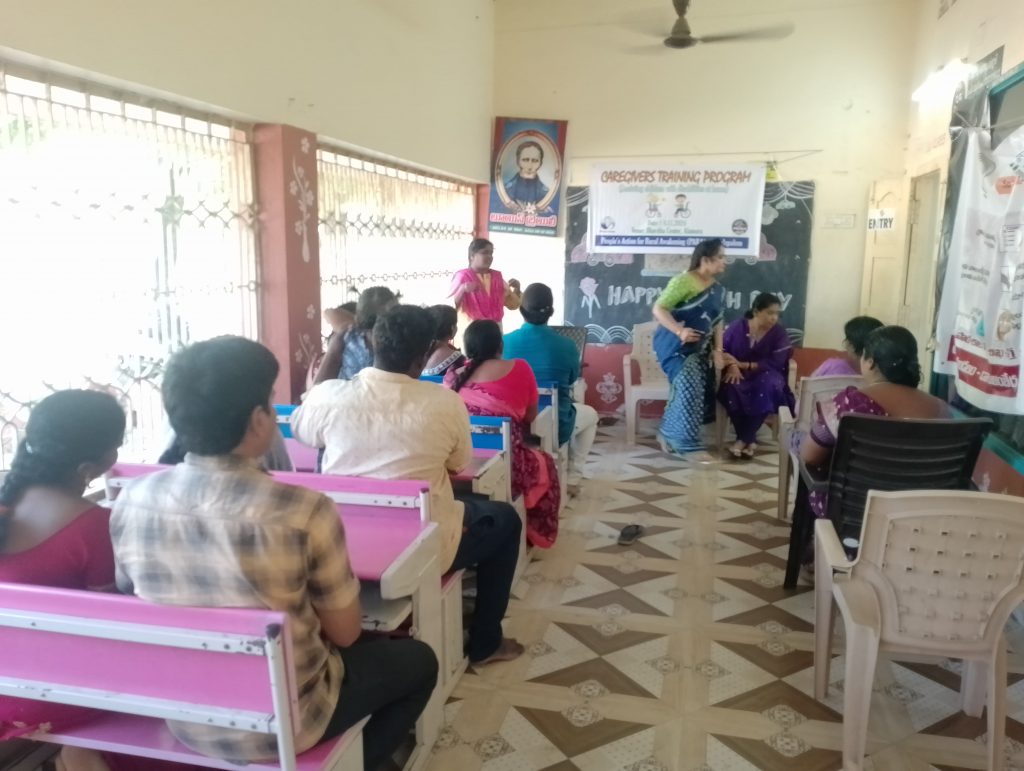
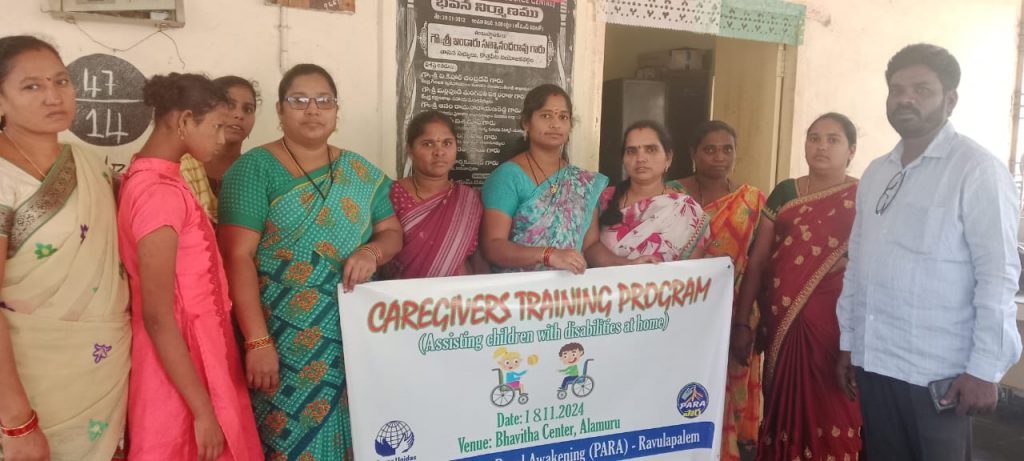
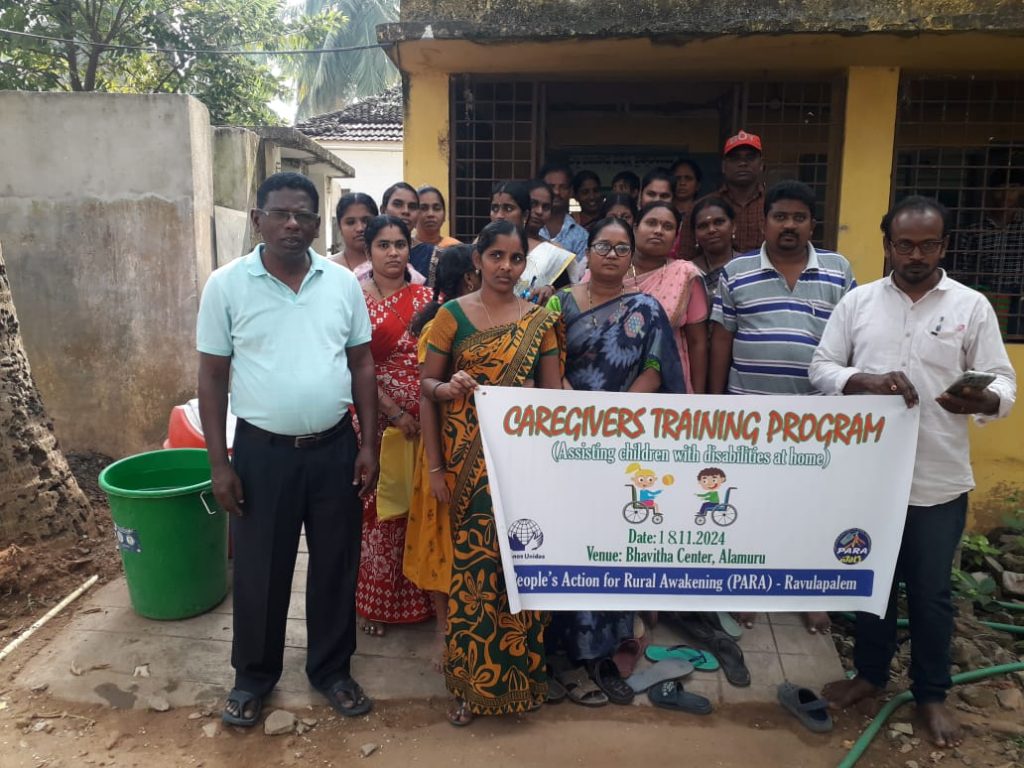
Constitutional Day is celebrated across India every year on November 26th. This day commemorates the adoption of the Indian Constitution in 1950, with Dr. B.R. Ambedkar serving as the chairman of the Drafting Committee. PARA, an organization committed to advocating for people’s rights based on constitutional principles, observed Constitutional Day on November 26, 2024, with participation from its staff and village representatives.
Mr. Ajay, a resource person from Visakhapatnam, addressed the gathering. He began his talk by discussing the various forms of discrimination prevalent in society. To illustrate his point, he used the metaphor of a tree, stating, “A tree that produces leaves never produces identical ones.” Similarly, he explained that people, with their diverse backgrounds, cannot possess identical qualities and behaviors.
Mr. Ajay went on to provide a brief history of the Indian Constitution. Officially adopted on January 26, 1950, the Indian Constitution serves as the cornerstone of the world’s largest democracy. Its creation was a meticulous process undertaken by the Constituent Assembly, formed in December 1946. Dr. B.R. Ambedkar, often hailed as the “Father of the Indian Constitution,” led the Drafting Committee.
The Indian Constitution is a remarkable document, drawing from various global sources such as the British parliamentary system, the U.S. Bill of Rights, and Ireland’s Directive Principles. It offers a robust framework for governance, balancing federal and unitary features, while enshrining fundamental rights and duties. These provisions aim to protect individual freedoms and promote justice, equality, and fraternity. With 448 articles, the Indian Constitution is one of the longest written constitutions in the world, reflecting the nation’s rich social, cultural, and linguistic diversity.
However, Mr. Ajay expressed concern about recent threats to constitutional values, suggesting that attempts are being made to replace its principles with those of the Manusmriti. He emphasized the urgent need for collective action to safeguard the Constitution, urging everyone to unite in its defense.
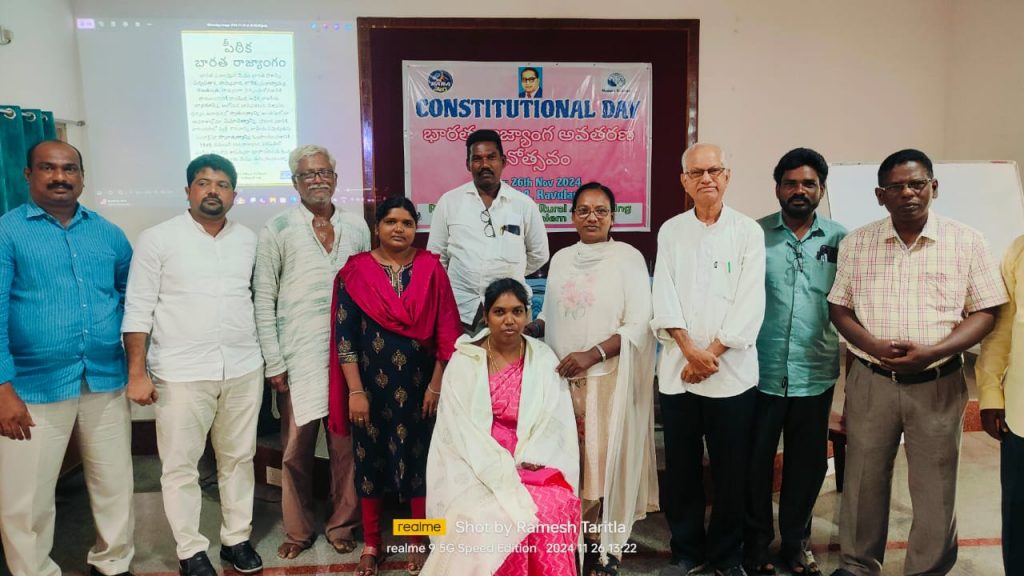
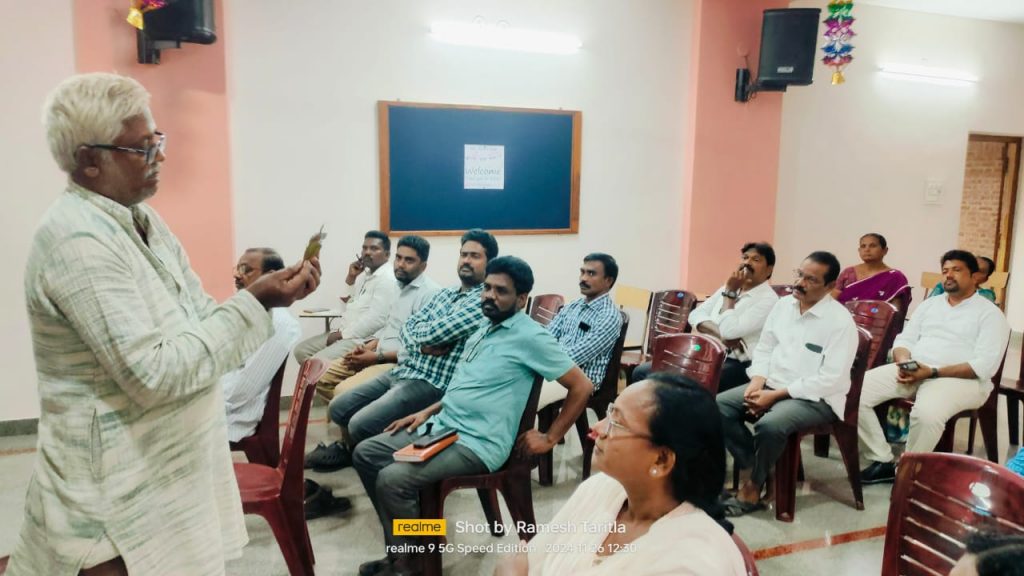
During a baseline survey, village visits, and committee meetings, several issues affecting local communities were identified. One of the major concerns raised was the lack of proper recognition and accurate assessment of disabilities in official certificates. This has resulted in significant challenges for persons with disabilities (PwDs), including:
The Government of Andhra Pradesh recently increased pensions to ₹15,000 for individuals with 90% disability or higher. However, many eligible individuals are unable to benefit due to errors in their certificates. Moreover, the process to correct these certificates is burdensome. For example, applicants are required to travel to Kakinada and physically visit offices located on the third floor, an arduous and often impossible task for those with severe disabilities.
PARA’s Advocacy Efforts
In response, PARA initiated an advocacy campaign to address these challenges. A team of five representatives, including PwDs with more than 90% disability, visited the district collector’s office in Amalapuram and submitted a memorandum outlining their concerns. They specifically requested the following:
Outcomes and Next Steps
The district collector acknowledged the issues and promised to organize medical camps at the block level to facilitate the issuance and correction of disability certificates. This initiative aims to:
By addressing these systemic barriers, PARA hopes to improve the recognition and rights of PwDs, ensuring they receive the full benefits and support they are entitled to.
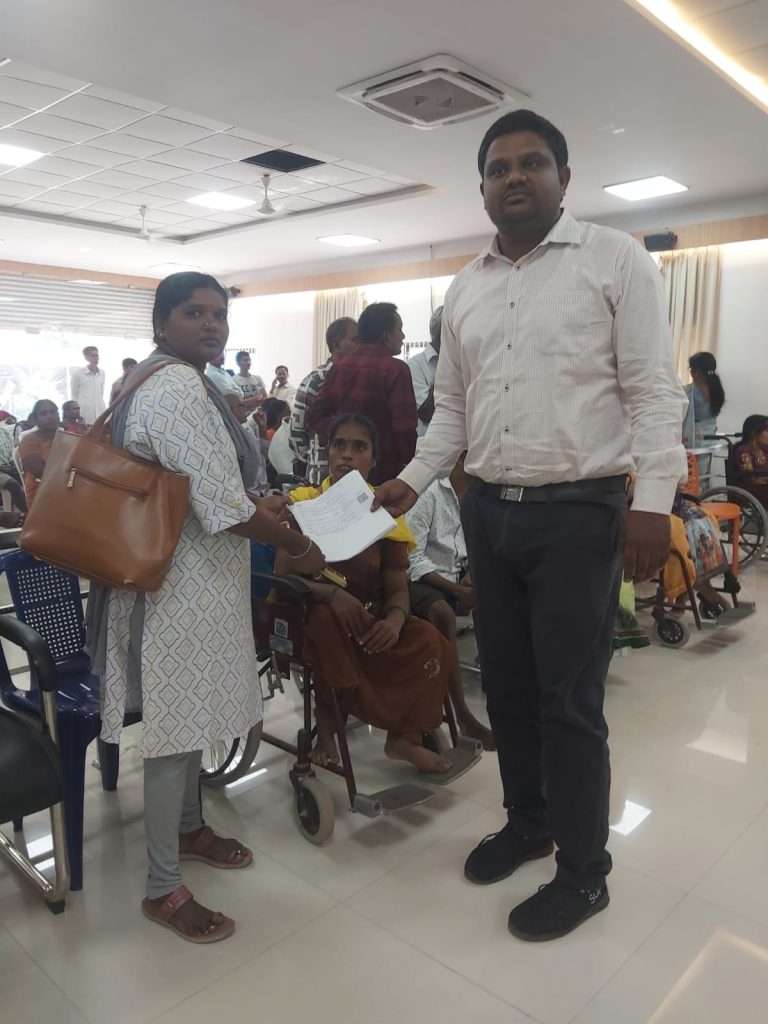
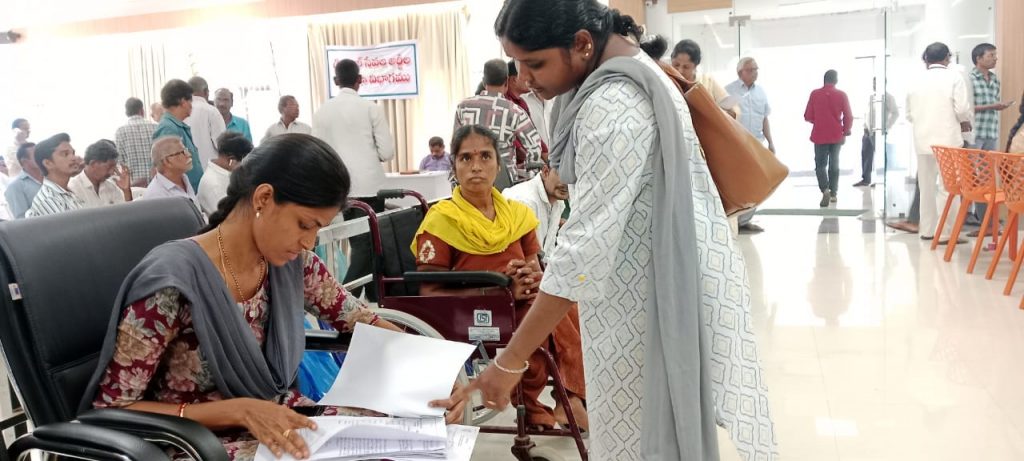
The previous week’s incessant rain had ceased. The dawn was bright yesterday, the 25th of October 2024. We considered it a good omen for the Job Fair that PARA had planned with Disha, the Career Guidance and Job Placement service of the St. Joseph’s Province of Hyderabad. The staff of PARA – Mr. Isaiah, Mr. Prabhakar, Mr. Mahima Rao, Mr. Ramesh, Ms.Durga, Mr. Kumar and Mr. Andrew – had done a great job of mobilizing the youth of 4 blocks – Alamuru, Atreyapuram, Ravulapalem, and Kothapetta. Mobilization was done both through social media and through door-to-door distribution of QR Codes for registering for the Job Fair. Their mobilization efforts showed results. From 9.00 am itself, youth from the surroundings came prepared for Job interviews. The stream of job seekers continued till 2.00 pm. Fr. Gandala Simharayulu had made all the logistical arrangements for the fair.
Fr. Jeevan and Fr. Justin from Disha introduced the HRs from Apollo, Health Care, Modine, Fusion Finance, and Future IT Solutions. These corporate entities conducted in-person interviews to select candidates for their companies. Amazon, Flipkart, and Vijetah joined the Job Fair online. Mr. Sagar, and Mr. Kranti, team members of Disha were able to handle the event very effectively. In the final count, 107 young people attended the Job fair. 70 of them were selected for the jobs they were interviewed for.
As the sun set, everyone felt that it was indeed a very rewarding day. Our hope that if a Job Fair was conducted on PARA premises it would benefit the youth in this region was not belied. This was a first for PARA. The first milestone in the Job Fair Initiative. It will not be the last.
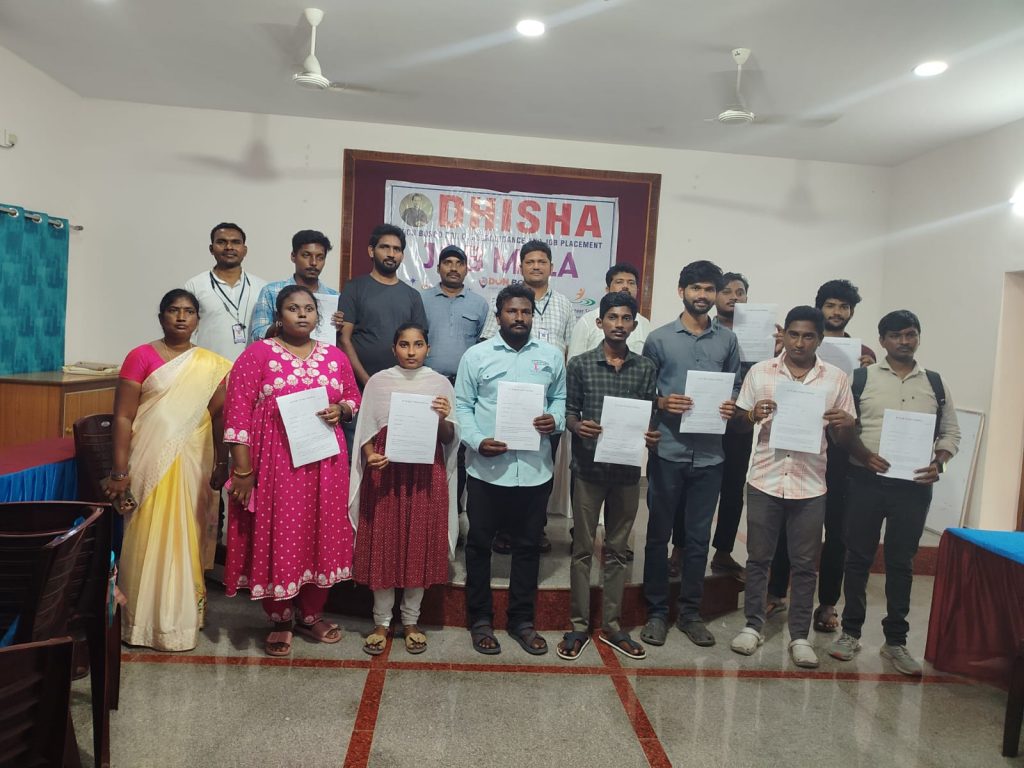
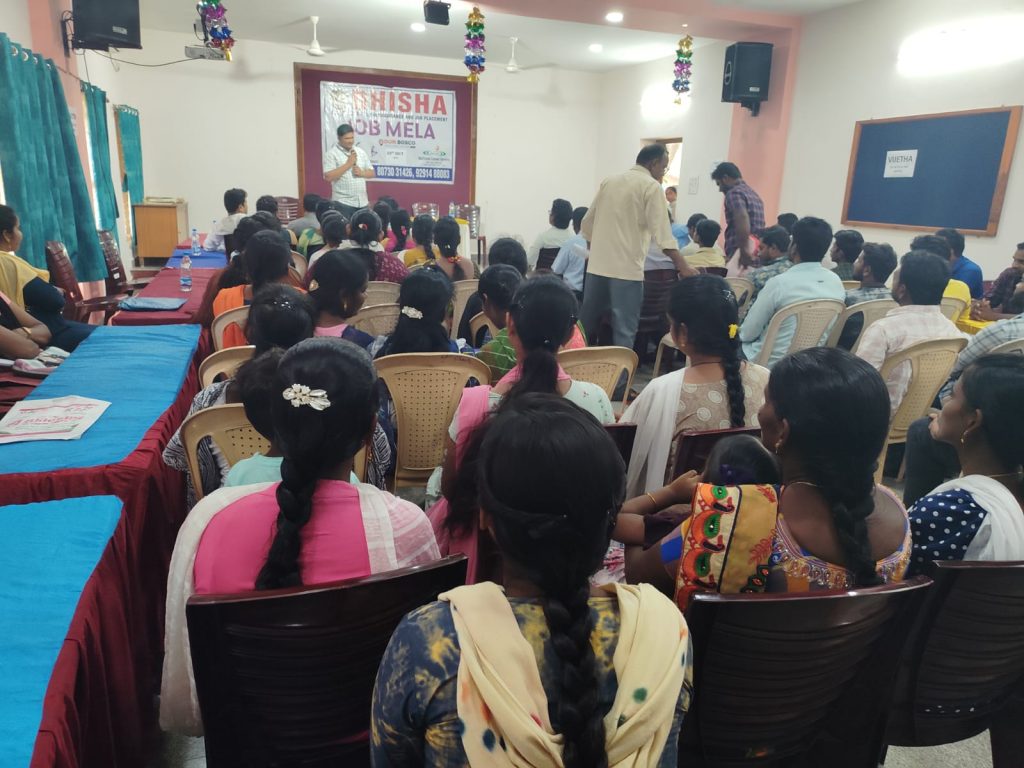
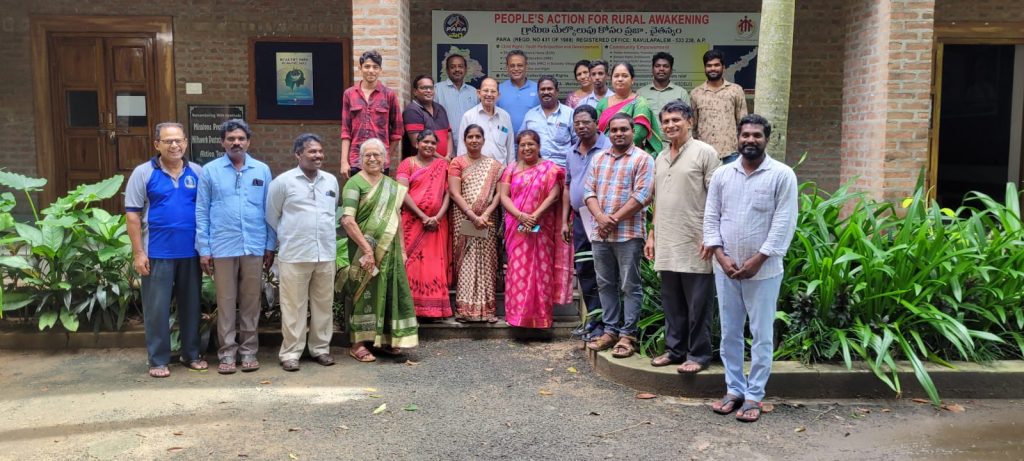
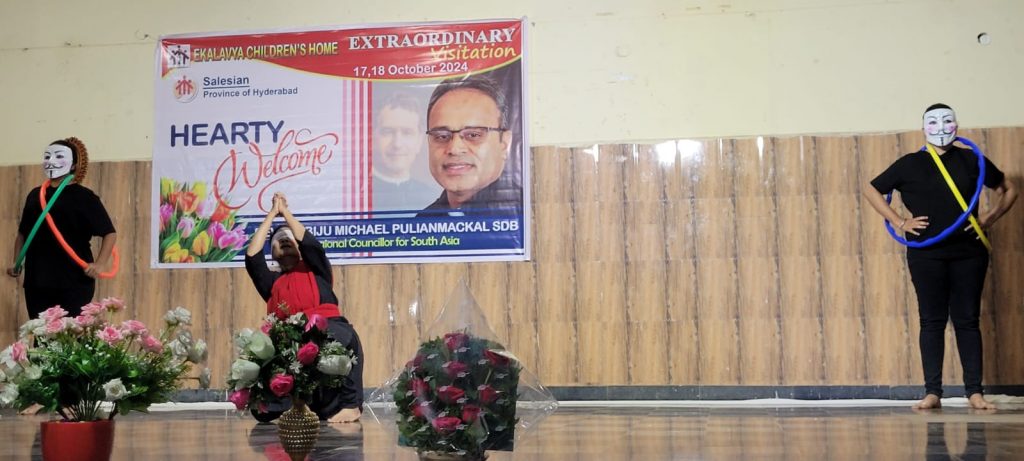
People’s Action for Rural Awakening (PARA), had two remarkable days – the 17th and the 18th of October on the occasion of the visit of Rev. Fr. Biju Michael Pulianmackal SDB, the Regional Councillor for South Asia. He was doing the 6 yearly Extra Ordinary Visitation of People’s Action For Rural Awakening. On the 17th he interacted with the Salesian community to review the progress of the spiritual and apostolic life of the community. In the afternoon of the 17th, he visited the office of Oota- Wellsprings, the Psycho-Social Centre of the Salesian Province of Hyderabad, headed by Fr. John Tharakan. In the evening he visited Ekalavya Children’s Home in Rajahmundry, a CCI run by PARA. The children in ECH performed a thought-provoking skit on communal harmony and the dream country they would like to live in. Their performance was followed by a theatre ensemble by the Chindu team from Hyderabad who had trained the children to do their performance. Well-wishers of ECH were also present for the interaction with the Regional Superior. On the 18th Fr. Biju had short sessions with the PARA staff, the Educative Pastoral Community of PARA, and the members of the Child Safeguarding Committee, and Internal Complaints Committee set up as required by the Prevention of Sexual Harassment at Work Place (POSH Act), and the Conflict of Interest Committee. The visit concluded with a debriefing by Fr. Biju Michael.